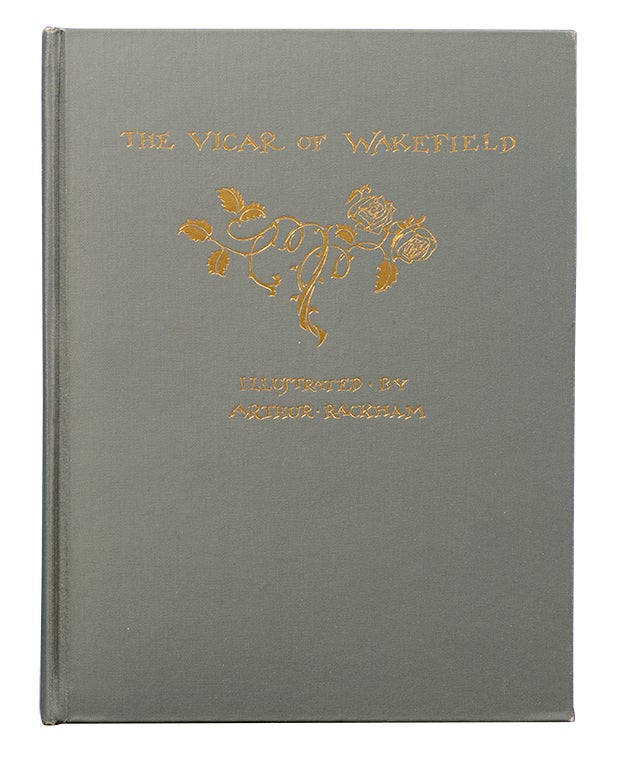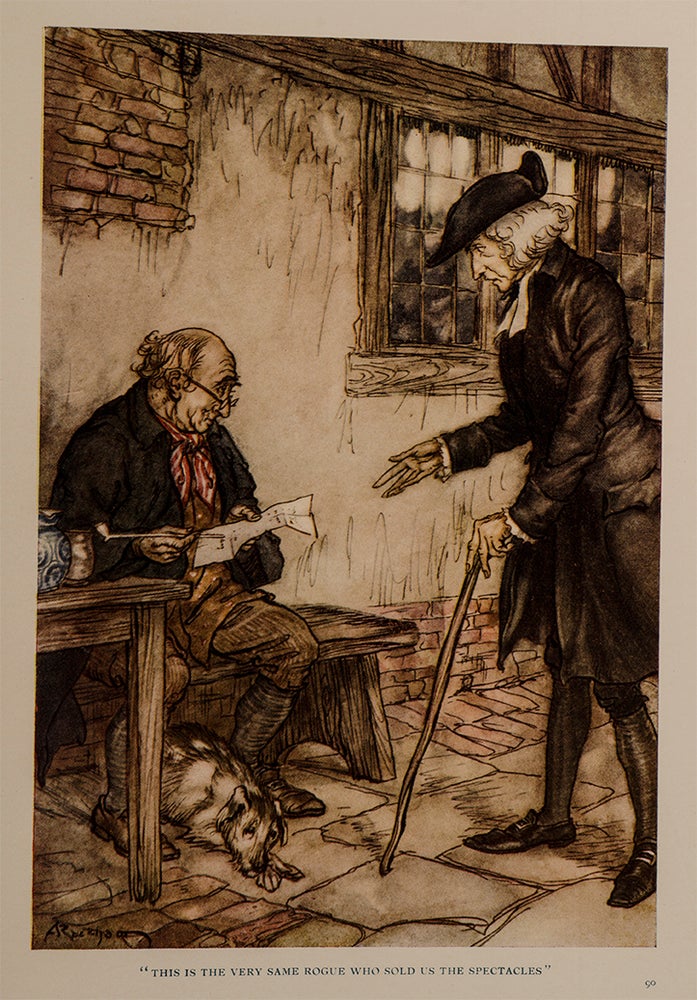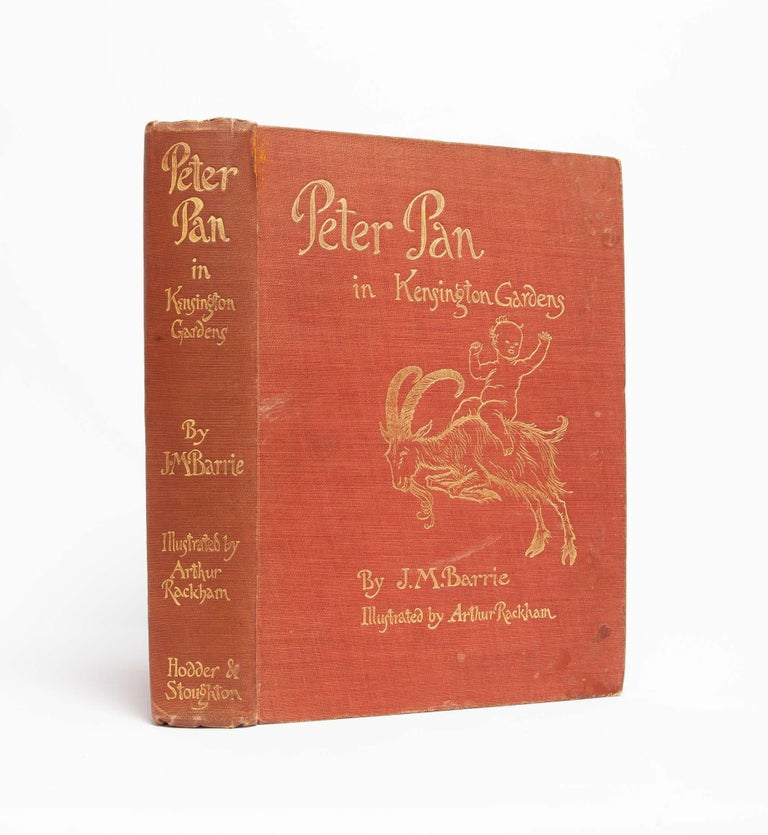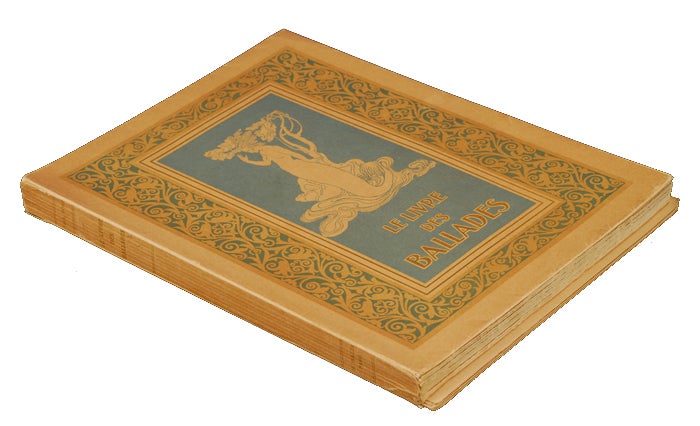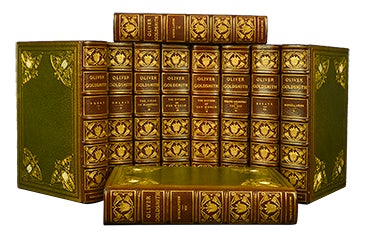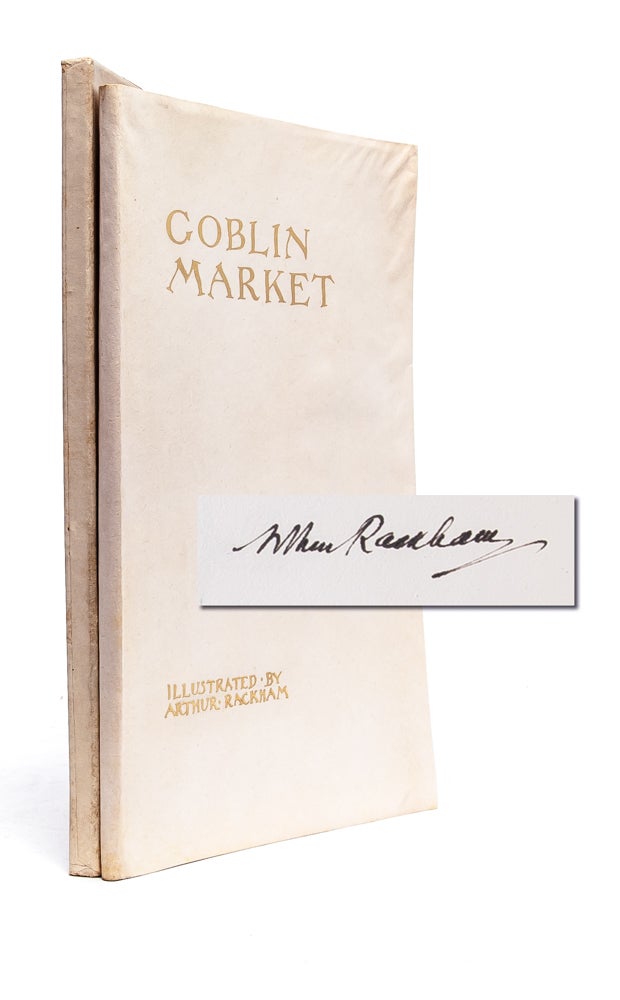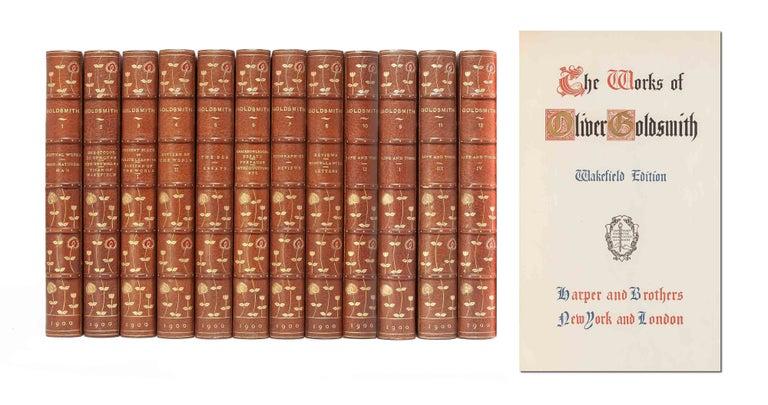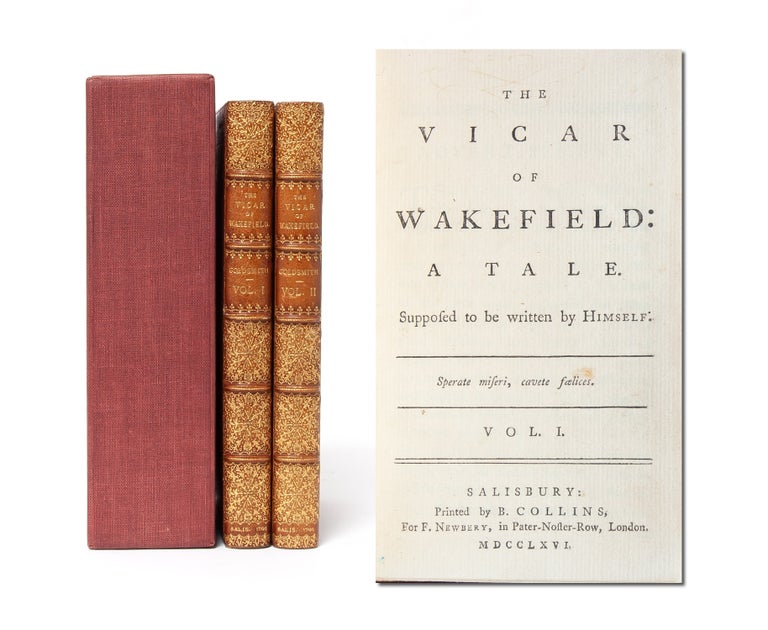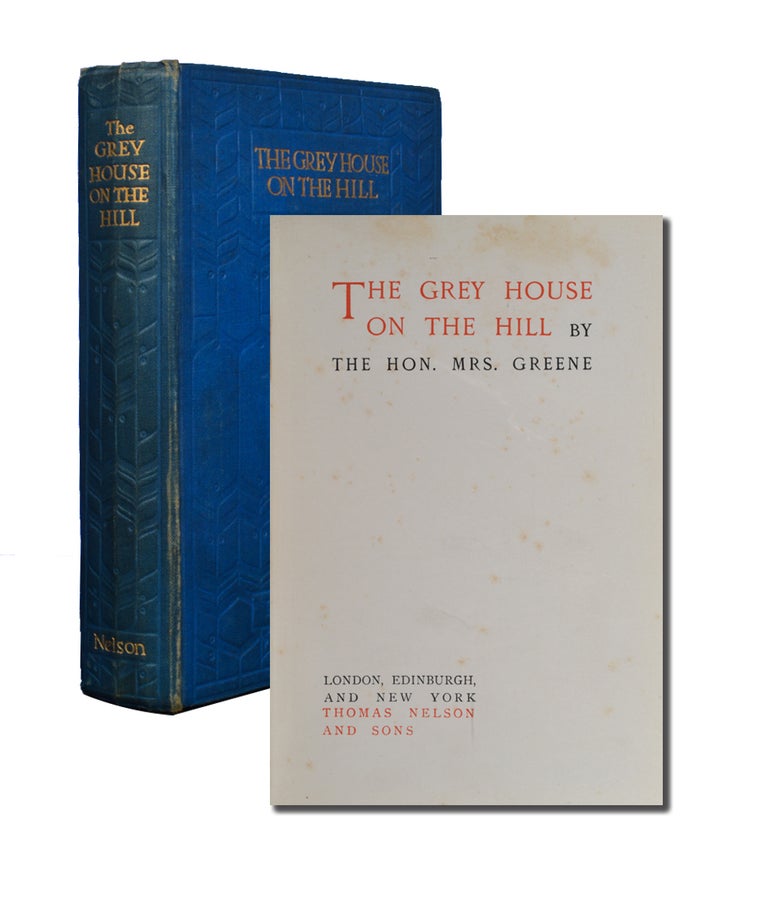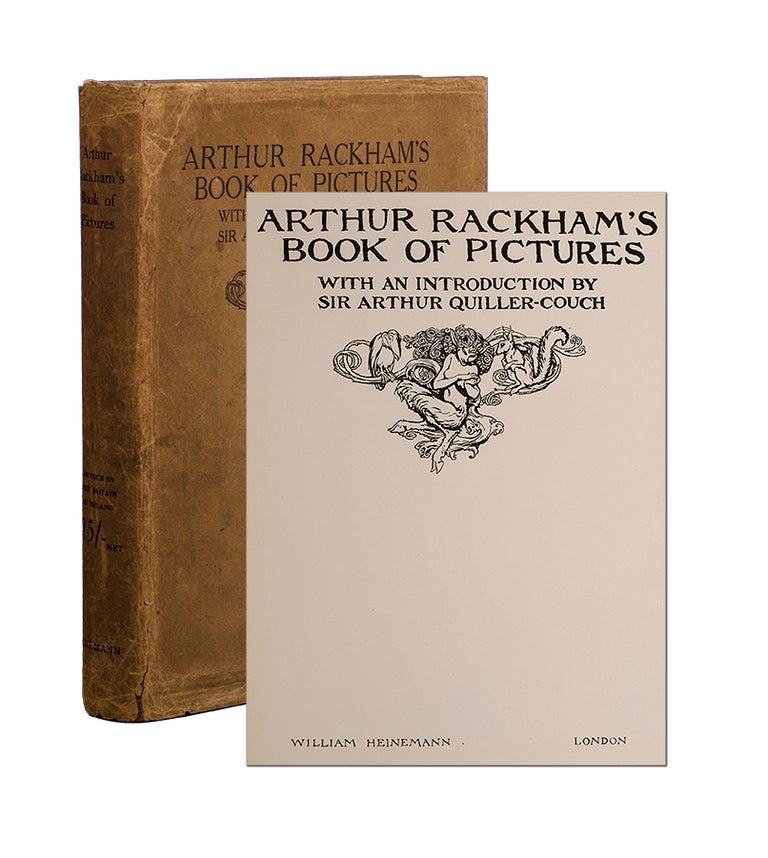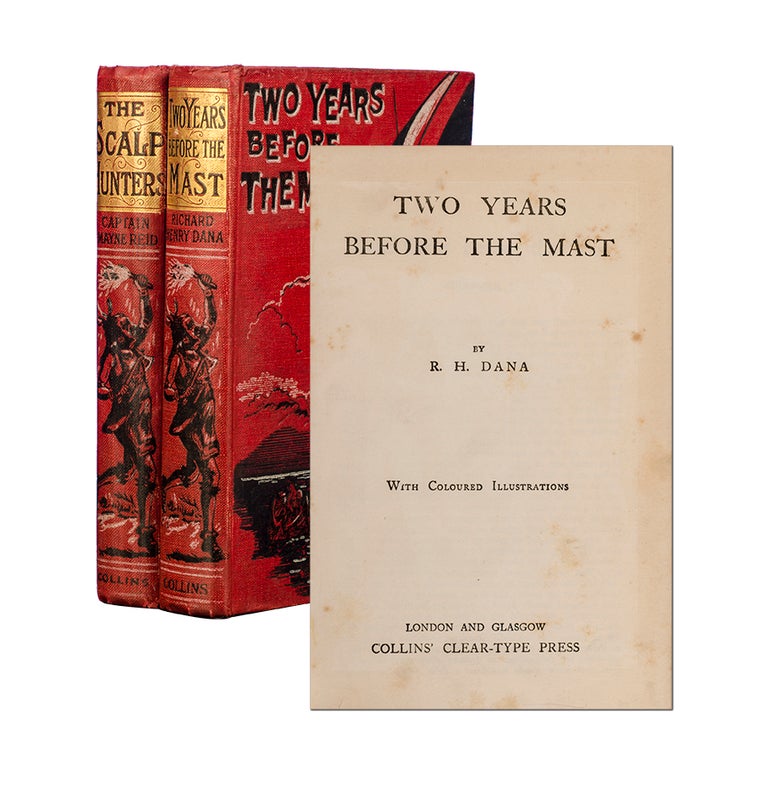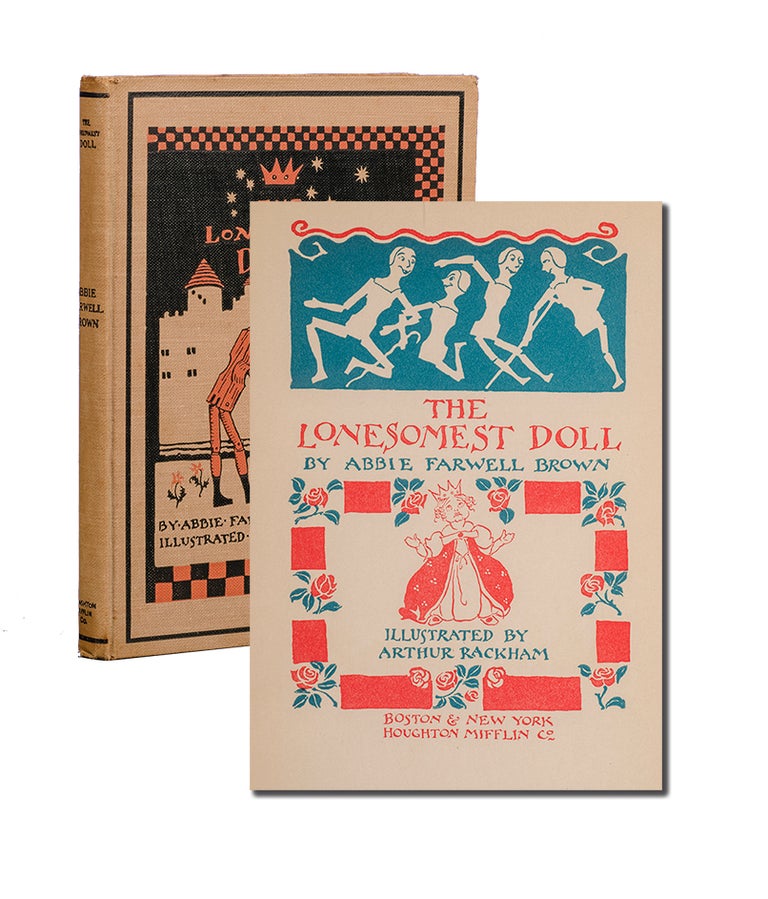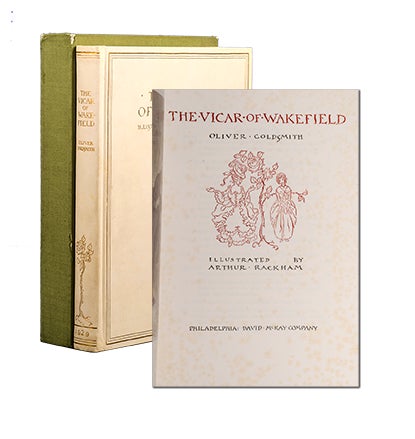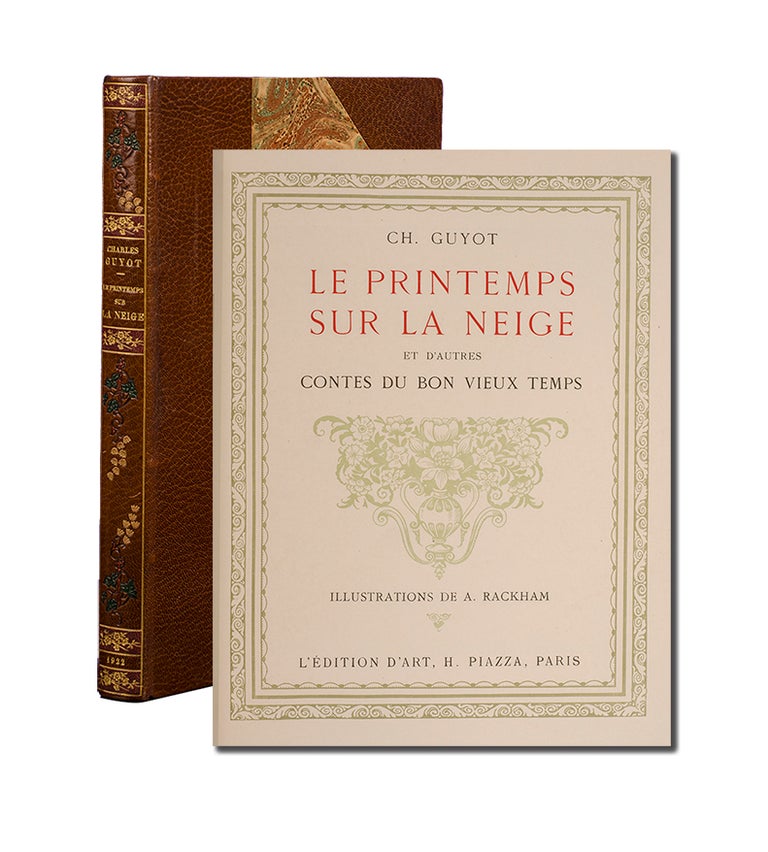The Vicar of Wakefield
Philadelphia: David McKay Company, [1929].
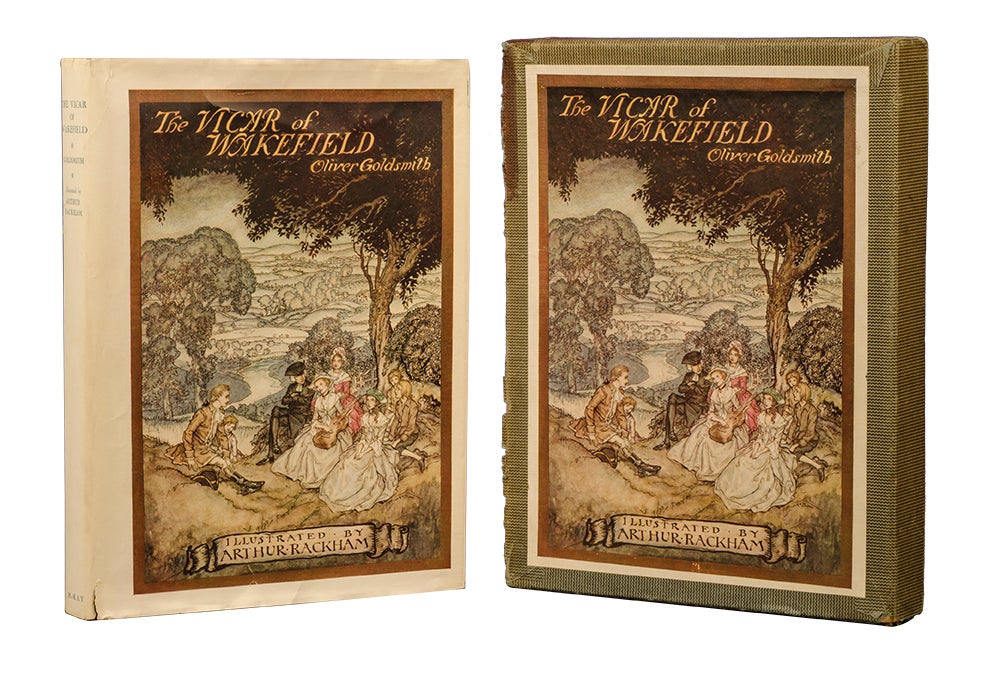

The Vicar of Wakefield
Philadelphia: David McKay Company, [1929]. First American trade edition. Quarto (9 1/2 x 7 1/8 inches; 242 x 182 mm.). Collating 231, [1]. Publishers dark blue ribbed cloth over boards, front cover and spine decoratively stamped in gilt. Pictorial endpapers, top edge gilt. Small stain on lower blank margin of color frontispiece with very slight mark on facing (title) page. Twelve full page color plates, twenty-two black and white line drawings. Otherwise a very Fine copy with the original color pictorial dust jacket with a 'titled' version of the color plate "A Favourite Song of Dryden's" (facing page 36) on the front panel. Clean tear on upper panel neatly repaired, small closed tear on lower rear panel.
Original blue cardboard box with the same color illustration as on the dust jacket pasted on the top panel and a white label "The Vicar of Wakefield / Oliver Goldsmith / Illustrated by Arthur Rackham on the lower edge. The box has had some repairs to the corners and the left-hand side edge is missing.
"In the England of jazz and Noel Coward the whimsical and fantastic had grown increasingly out of fashion. With The Vicar of Wakefield of 1929 ... Rackham played it safe by turning to historical costume... in which he had long been supremely accomplished and successful" (Hudson 126).
One of the most popular books of the 18th century. This novel, both a work of sentimental fiction and a satire on the genre itself, follows the trials and eventual triumph of the Primrose family, led by the Rev’d Dr. Charles Primrose, the vicar. Goldsmith was a noted Irish wit and a member of Samuel Johnson’s famed literary club, who Johnson praised as: “In genius, vivid, versatile, sublime. In style, clear, elevated, elegant." The legend of the book’s publication is that Goldsmith was about to be arrested by his landlady for debt, when Johnson was able to sell the manuscript of the novel to a publisher for sixty pounds, saving his friend in the nick of time. “I brought Goldsmith the money, and he discharged his rent, not without rating his landlady in a high tone for having used him so ill.”
Hudson 171. Latimore and Haskell 65. Riall 170. (Item #3737)

